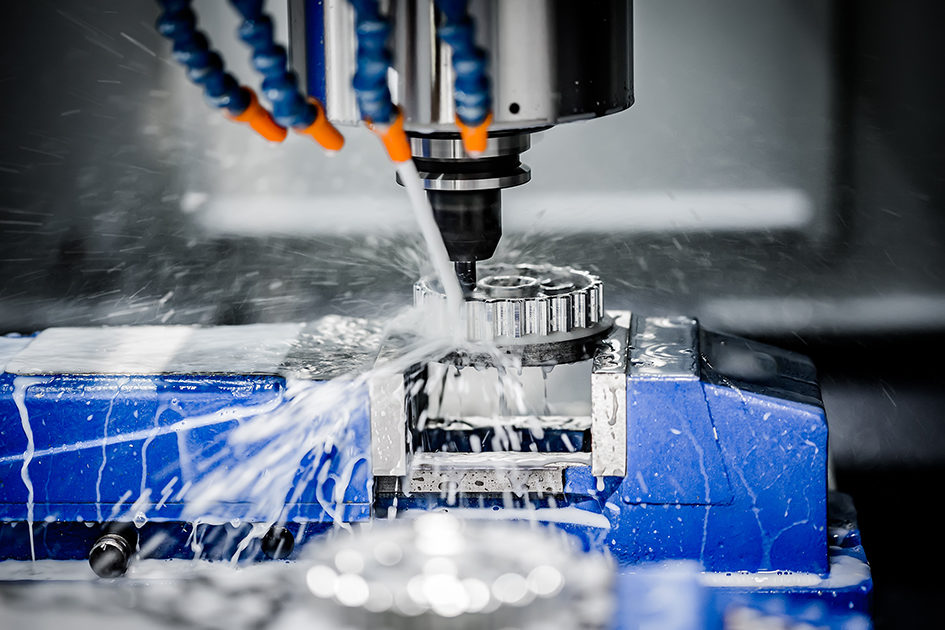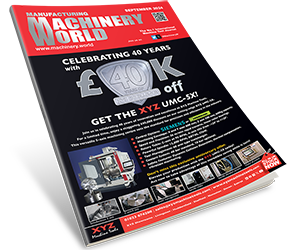The people at ROCOL have a reputation for solving difficult technical challenges while producing cutting fluids and industrial lubrication products that offer significant advantages over the competition. ROCOL products are formulated and then tested on state-of-the-art equipment which means customers can be sure of maximum performance every time.
One key element that the UK-based company is sure of is the overall performance of any soluble cutting fluid emulsion is partially dependant on the quality of the ‘mixing water’ used to prepare it.
ROCOL consider three main features to indicate the quality of water. First, freedom from bacterial contamination. Secondly is freedom from particular contamination, and finally the amount of dissolved calcium and magnesium salts, referred to as total hardness often stated as a ppm (parts per million) value.
Water that is hard contains calcium and magnesium compounds. Rain water is naturally soft – it contains few minerals. As it seeps through the ground it can pick up minerals, such as calcium and magnesium compounds, from the soil and rock it passes through.
If rain water passes through soft rocks like chalk or limestone, it picks up these minerals. If it passes through hard rocks, such as granite or through peaty soils, it does not pick up these minerals and so remains soft.
All UK mains water will meet regulatory quality measures. However, the total hardness of such water varies greatly across the country. Areas such as the South of England, where the majority of water is supplied from underwater springs set into calcium rich ground, tend to have high levels of total hardness. Areas such as Scotland have relatively soft (or mineral free) water.
Total water hardness is usually measured in ppm (parts per million). It is generally accepted that the ideal water hardness for preparing cutting fluid is around 90 ppm. If the water is softer than this then excess foaming can be a problem. If the total hardness increases above this level other problems can be encountered.
Effects of Hard Water
If the hardness of the mixing water exceeds 300 ppm then fluid performance will always tend to be compromised. High levels of hardness minerals in water will affect both fluid performance and sump life. These minerals react with the chemical emulsifiers and cause emulsion instability. This can result in poor cutting performance; reduced corrosion protection and a tendency for the fluid to split (separate back to oil and water). They can also react with various other additives and lead to the generation of insoluble hard water soap or scum.
Most cutting fluid formulations can initially cope with even the hardest UK water. The real problems start as mineral levels rise due to the need to constantly top up systems with fresh fluid. The need to top up systems is caused by ‘drag out’ on swarf and evaporation of the water phase due to heat. This evaporation concentrates the hardness minerals in the remaining fluid. Then, as the system is topped up, fresh minerals from the supply water are added. This process continues with every top up gradually increasing the total hardness of the fluid until it reaches problem levels.
The rate at which total hardness increases will vary from machine to machine and will depend on factors such as the initial water quality, the amount of fluid dragged out by swarf, the amount of heat generated during the machining process and even the design of the coolant tank.
Where cutting fluid performance is compromised by water quality it is sometimes cost-effective to consider using treated water, which will have a positive effect on the life of the cutting fluid but a short term, negative impact on the profit margin as water treatment equipment would need to be purchased. However, the use of ROCOL’s Ultracut HW (hard water) EP and semi-synthetic range of cutting fluids can help to minimise the associated problems.







